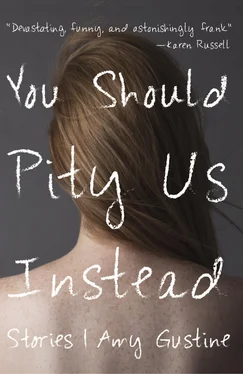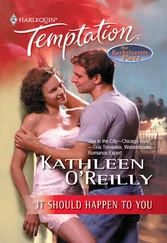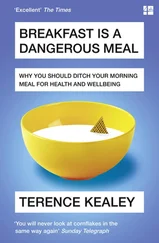The next night she sleeps on the beach hidden behind a pile of cinder blocks, and in the morning her bones feel only gently pinged, like the keys of a piano too strenuously played. The men think they took all her money, but R’s mother hid bills between the inner and outer sole of her shoe, so she buys a banana and eats it, watching a group of children yelling at a boy cowering against a wall. Every few seconds laughter bursts forth and the faces light up, including the boy against the wall. He switches places with one of the shouters and shows her how it’s done, getting his face low, leaving her only a view of his dark, angry eyes. The other children clap at his performance. R’s mother catches the words “soldier” and “tough.” Instead of cops and robbers, the children here play IDF and Palestinian.
She shows them R’s picture. “Do you know him?”
One little girl says he looks like her father. “But he’s not.”
A boy asks what his name is, then shrugs apologies and wanders off.
After that, R’s mother talks only to children. Their skin feels dusty when she takes an arm, asks them to look. “He is here,” she explains, “being kept somewhere. If you were kept, wouldn’t you want your mother to be able to visit?”
The strip is twelve kilometers at its widest, forty-one long. For three days she lines up her steps with the sun’s arc from land to sea. One time an older girl narrows her eyes. “My brother is in jail in Israel and my mother cannot visit.” When the girl runs off, shouting something R’s mother can’t understand, she hurries away, hiding for an hour in an abandoned market.
Another time a different girl asks why she is stooped.
“I’ve been walking a lot and my back hurts.”
“You should stop walking.”
“I can’t.”
She traverses the sand and rubble fields between towns, and on the fourth day reaches Khan Yunis, a town whose busy streets add the smell of motorbike exhaust to the relentless odor of sea salt and fish. That night she hides in a yellow boat, a tangle of net for a pillow, for her blanket, a filthy tarp. The odors have become her. She will smell of dead things from now on.
Near dawn, her dreams are infused with a man’s mourning call. R is dead. The man, whom she doesn’t know, is rending garments, crying out during Kriah. Blessed are You, Lord, our God, King of the universe, the True Judge.
She starts awake, her heart beating fast. The smoky predawn sky swells with a quivering ululation. The voice rises, buzzing, hits a single bell-like note, drops again. Not mourning. Only morning. The muezzin’s call to prayer.
R’s mother drifts back to sleep and is wakened by a giggling group of boys calling her a fish, pointing at her feet, which have become entangled in a second net. One boy, around thirteen, with a face all teeth and eyes, helps free her. She shows him the pictures of R. In the most recent one R stands outside their apartment building on graduation day, squinting against the sun. The photo has absorbed water from the boat’s bottom, and when the boy takes it, a gash opens across R’s leg. The boy gazes at the photo several seconds before saying in slow, badly pronounced English, “I see him.”
They make arrangements. She will wait for him to fish with his uncle and then he’ll take her where she wants to go. R’s mother, heart pounding, sits on a sewer pipe at the beach’s edge. The day is overcast and boats can’t go far without risk of being fired on by Israeli ships. Still, she keeps an eye on the boy’s skiff, ignoring the women in the nearby camp who watch her while they hang laundry. They recognize an outsider, but hardly imagine a matronly Jew has smuggled herself in.
Two hours later the boy and his uncle drag the boat onto the sand, weight it against wind and tides with jagged cement blocks and carry their rods and buckets to a path that leads into the streets. R’s mother follows at a good distance until they go into one of the cinder-block houses, then she crosses the street and waits inside the remains of a hotel, its first floor open to the sky. Creatures scratch in the rubble, so she climbs onto a section of fallen wall, using its exposed rebar as a ladder.
When the boy emerges, shuffle-running in front of a donkey hauling two men on a flat metal cart, R’s mother scrambles down, and they walk several blocks to a house with a Palestinian flag painted next to the door, its colors turned cinereal over the concrete’s porous face. The boy slips inside and returns shortly to ask for a hundred shekels, shrugging to indicate the greed is not his. They repeat this process at two more houses. In both, R’s mother hears a baby crying and smaller children playing. At another market, she buys a loaf of bread and some nuts and they sit on the curb.
“Are we getting close?” she asks in Arabic.
The boy nods. “Yep,” he says in English. “Okeydokey.”
She’s never heard the phrase before and asks what it means. He explains it is an American word, as if that is enough.
“How old are you?” she asks.
“How old are you?”
“Old enough for respect.”
He smirks. “Yes, Grandma.”
She fakes a glower. “What is your name?”
“Jamil.”
She can tell he’s lying. “Jamil, what is your favorite subject in school?”
“School is a waste of time.”
“My son used to tell me that all the time. He liked to learn, but he didn’t like to go to school.”
The boy looks chagrined. “I know what I need to.”
He takes her from place to place, asking for money sometimes, other times not. Once he disappears in a crowd and she doesn’t expect him to reappear. This is all a ruse, of course. He can’t help her. Then he’s there, hand on her sleeve. They go down a street where most of the houses have been reduced to rubble. A group of boys is playing capture the flag. The boy is greeted warmly and huddles with the others, speaking in hushed tones. Light pours down on the dark, tousled heads. No trees or buildings to cast cooling shadows. Only broken trapezoids of gray scattered among the ruins. The boys are deciding how to fool her. She wants to suggest they write out directions on where to find her son and send her on her way. By the time she discovers their duplicity, they can be home, in bed.
The boys scatter among the ruins just as the ululating voice swells again for midday prayer. For the next several minutes R’s mother stands frozen in the middle of the road, her own shadow creeping away, though her body knows not what to do. Which direction do you face? What name do you call out? How do you hold your hands in reverence? She is exposed, incapable of escape, a figure encased by a sniper’s target circle. Then the boy emerges from a pile of concrete, motions for her to be quiet, grabs the pink rag and dances down the street, avoiding the telltale pebbles in favor of toe-sized patches of smooth concrete. The voice, still keening, camouflages the noise of her less adept escape.
At the base of a wall covered in blue Arabic letters R’s mother can’t read, the boy lays down the rag. On the other side of the wall is a field of tents. He signals for her to wait and disappears through a gap. He won’t come back. There are probably a dozen entrances. She settles against the wall anyway. Occasionally men glance at her, but she is covered head to toe, and they must assume she is waiting on a husband. Motorbikes and the occasional mud-splattered car pass. R’s mother grows sleepy, wonders what might happen if she lay down here and said enough.
At the backfire of a motorbike she opens her eyes. A trio of camels, tethered in line with a rope, gets away from an old man a block off. They lope past, followed at some distance by the man, limping and swearing. Just then the boy returns. Taking in the situation, he catches up to the camels and grabs at the swinging rope. R’s mother shouts in Hebrew to be careful, he’ll get trampled.
Читать дальше












